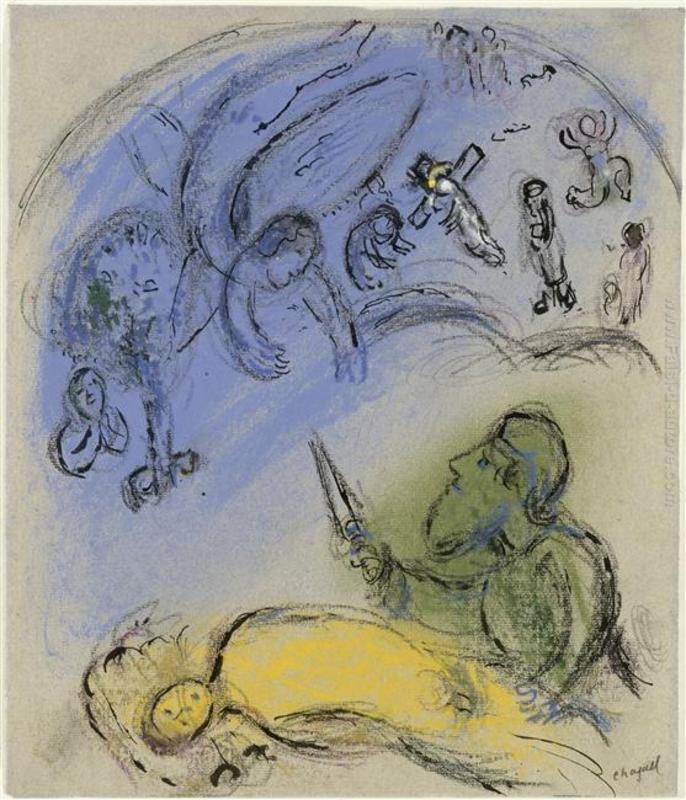Holy Wednesday

Despite the fact that it is included in what we call “Holy Week”, we do not tend to give much importance to Holy Wednesday in the liturgical calendar of the Church and its significance pales alongside the other days of the week: Jesus’s entry into Jerusalem on Sunday, the Last Supper on Thursday, his crucifixion on Friday and so on… However, even though it is a little neglected over the generations, this day in the history of salvation is great and important.
Throughout the generations, the first theme that is emphasized on this day is that of the betrayal of Judas Iscariot. According to tradition, on this very day he conclusively decided to hand over his teacher and lord. For this reason in days gone by – and even today in some places – Christians consecrate every Wednesday by a special fast to remember Judas’s betrayal of Jesus, man’s betrayal of God.
If the preeminent theme on this day is betrayal, the second is atonement and repentance. Especially in the Eastern tradition of Christianity, this day is dedicated to the memory of the sinner woman who anoints Jesus’s feet with oils, bathes them in her tears and dries them with her hair (Luke 7:36-50). Thus, the same day contains two total opposites and two opposing dynamics: Judas, who was an apostle of Jesus and a close friend who became a hater and betrayer, on the one hand, and on the other, the woman who lived in great sin and chose to repent and to receive Jesus as Lord. Drawing away and coming close, complete opposites.
In the Eastern tradition, a unique prayerful hymn is heard on this day: the hymn of Kassia (or Kassiani). She was the abbess of a Greek convent in the ninth century and her compositions of Greek liturgical hymns are the first whose notes are preserved until today. About twenty three of her compositions are included in the Eastern liturgy and this one is undoubtedly the best known and most beloved of all. She was born into a rich and established Constantinople family and when she entered the convent, she renounced her earthly status. She describes in the hymn the sensations of the sinner woman at the moment that she inclines towards Jesus and kisses his feet and then relates this event all the way back to the fall of Adam and Eve. When the song erupts from the mouths of the faithful in church, it describes too their journey as they overcome sin. I present the psalm here in translation:
"Sensing your divinity Lord,
a woman of many sins,
takes it upon herself
to become a myrrh bearer
and in deep mourning
brings before you fragrant oil
in anticipation of your burial; crying:
"Woe to me! What night falls on me,
what dark and moonless madness
of wild-desire, this lust for sin.
Take my spring of tears
You who draw water from the clouds,
bend to me, to the sighing of my heart,
You who bend the heavens
in your secret incarnation,
I will wash your immaculate feet with kisses
and wipe them dry with the locks of my hair;
those very feet whose sound Eve heard
at the dusk in Paradise and hid herself in terror.
Who shall count the multitude of my sins
or the depth of your judgment,
Savior of my soul?
Do not ignore your handmaiden,
You whose mercy is endless".
Listen to the hymn here











 Rosh Hashana – la Fête de Dieu le Père
Rosh Hashana – la Fête de Dieu le Père Quatre mots pour la saison pascale
Quatre mots pour la saison pascale Générosité, confiance et courage. Vie consacrée à Dieu pendant la pandémie
Générosité, confiance et courage. Vie consacrée à Dieu pendant la pandémie De la ligature d’Isaac à la Transfiguration – pour continuer le Carême
De la ligature d’Isaac à la Transfiguration – pour continuer le Carême L’histoire de la guérison du lépreux ( Marc 1 : 40-45 )
L’histoire de la guérison du lépreux ( Marc 1 : 40-45 )